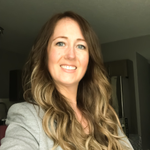Event Details
When working with clients who embody socially challenging issues—such as colonization, sexism, ableism, heteronormativity, or racism—we must address two scales of focus.
On one hand, we focus on the micro-level of our client's (and our own) personal experiences and those of their family, based on people they've met or stories they've heard as sources of evidence and judgment. On the other hand, we adopt a macro-level perspective based on the impact of social, cultural, environmental, and historical contexts—the environment in which we, our family, and our community live. This perspective is reflected in media representations, school curricula, and government programming. Both levels must be considered to provide effective support to our clients.
To achieve this, this seminar will explore three essential engagements to support equity in our work:
- Critical Analysis. Everyone is diverse. However, when discussing diversity, the focus often shifts to those who are not part of the dominant culture—those who are privileged by being seen as, and seeing themselves as, "normal." Many psychological approaches risk "blaming the victim" by understanding the client's experiences as solely originating within the individual. Critical analysis involves awareness of the sociocultural context and its power dynamics, allowing for macro-level explanations of client experiences that avoid pathologizing reactions to oppression. This workshop will emphasize the importance of recognizing diversity within our clients and understanding how power relations shape their experiences and identities.
- Critical Reflexivity. We invent our clients based on the identities they carry and the questions we ask. Likewise, our clients invent us, as counsellors, based on our identities and their perception of the psychologist's role. Critical reflexivity is the awareness of our own identities and the power they hold within the sociocultural context. This workshop will provide a set of reflective questions designed to ensure safety and effectiveness when working with marginalized clients.
- Critical Action. When working with clients, it is vital to address both their personal healing and the broader community factors that promote or hinder it. Therapy focuses on the micro-level—the personal experiences of the client—aiming to foster growth and healing through direct interventions or referrals to wellness resources. In the face of oppression, therapy must differentiate between pathology and internalized oppression. Advocacy, on the other hand, focuses on the macro-level, collaborating with the client to improve the sociocultural context for their community, particularly for others in similar positions. In this role, the counsellor serves as an ally in the pursuit of social equity. This workshop will demonstrate how therapy and advocacy can work together to co-create healing and wellness amid personal suffering and social marginalization.



